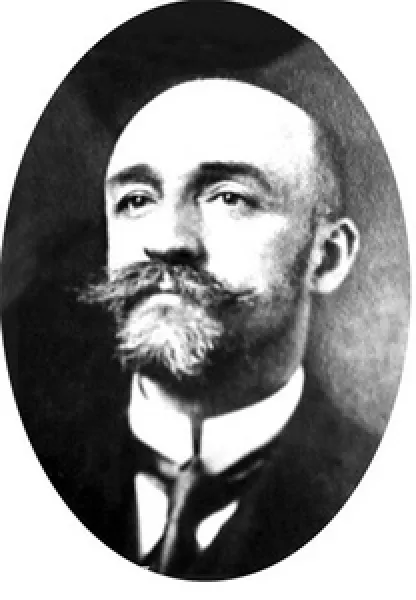
Timeline
Title
Country/Nationality
Stanislav Dnistriansky
Stanislav Dnistriansky was a renowned Ukrainian writer, essayist, and philosopher who contributed significantly to the literary world. He was born on March 8th, 1932, in the small village of Velyki Mosty, located in the Lviv region of Ukraine. His literary career spans more than five decades, and his works are still widely read and studied today. In this essay, we will explore the life, philosophy, notable works, and legacy of Stanislav Dnistriansky.
Stanislav Dnistriansky was a prolific writer who produced over 40 books, including novels, essays, and philosophical treatises. His works were primarily written in the Ukrainian language, but many of them were translated into other languages, such as Russian, Polish, and English. He was also a prolific translator, and his translations included works by Shakespeare, Dostoevsky, and Kafka.
One of Dnistriansky's key principles was the belief in the power of literature to transform society. He believed that literature had the power to change the way people think and act, and that it could help to bring about a more just and equitable world. He was also deeply committed to the preservation of Ukrainian culture and language, and many of his works explore themes of Ukrainian identity and nationalism.
Dnistriansky was famous for his ability to weave complex philosophical ideas into his works of fiction and non-fiction. His writing was characterized by a profound sense of empathy and compassion, and he was particularly interested in exploring the inner lives of his characters. His work often dealt with themes of identity, memory, and the nature of reality, and he was known for his ability to challenge readers' assumptions and preconceptions.
Some of Dnistriansky's most notable works include his novels "The White Raven," "The Path of Waves," and "The People's Judas." "The White Raven" is a historical novel set in 16th-century Ukraine, and it explores themes of religious and political conflict. "The Path of Waves" is a philosophical novel that follows the life of a young man as he struggles to find his place in the world. "The People's Judas" is a powerful meditation on the nature of betrayal and forgiveness, set against the backdrop of the Ukrainian independence movement.
Dnistriansky's philosophy was deeply influenced by existentialism, and he was particularly interested in the works of Jean-Paul Sartre and Albert Camus. He believed that human beings were fundamentally free, but that this freedom came with a sense of responsibility and an awareness of our own mortality. He also believed that we are defined by our choices and that our lives are shaped by the decisions we make.
Stanislav Dnistriansky died on December 14th, 1997, in Lviv, Ukraine, at the age of 65. He is remembered as one of the most important Ukrainian writers of the 20th century, and his works continue to be studied and celebrated today. In 2003, a monument was erected in his honor in his hometown of Velyki Mosty, and his legacy continues to inspire new generations of writers and thinkers.
A fun fact about Dnistriansky is that he was an avid traveler and spent time in many different countries throughout his life. He believed that travel was a way to broaden one's horizons and gain a deeper understanding of different cultures and ways of life. This love of travel is reflected in many of his works, which often explore themes of cultural exchange and cross-cultural communication.
In conclusion, Stanislav Dnistriansky was a brilliant Ukrainian writer and philosopher whose works continue to inspire and challenge readers today. His commitment to the power of literature to transform society, his deep empathy and compassion, and his philosophical insights
Books by Stanislav Dnistriansky

Ukraina and the Peace-conference
It explores the events that took place during the Peace Conference of Paris in 1919 and the impact it had on Ukraine's struggle for independence. Written for 13-year-olds, this book offers a detailed account of the political and social factors that s...